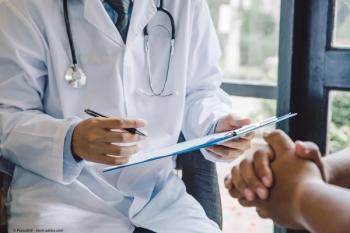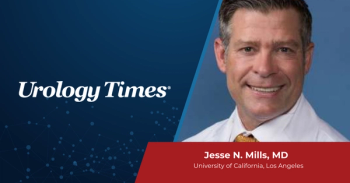
Post-prosthesis infection data alter conventional thinking
"The observations that penile prosthesis surgical infections occurring early are frequently associated with anaerobic bacterial organisms and that these infections overall comprise diverse pathogens including fungal organisms fundamentally alter conventional thinking related to this topic area," writes Arthur L. Burnett, II, MD, MBA.
Dr. Burnett, a member of the Urology Times Editorial Council, is professor of urology at Johns Hopkins University School of Medicine, Baltimore.
The research by Gross et al provides important grounds for reconceptualizing infectious complications associated with penile prosthesis surgery (see
Previous thinking considered primarily gram-positive bacterial organisms with antibiotic coverage directed accordingly. Prosthetic surgeons may wish to consider this new information strongly in applying revised antimicrobial protocols for penile prosthesis surgery.
Although prosthetic device infection is an infrequently occurring complication of prosthetic surgery in modern times, it is generally recognized that it represents the most serious complication risk of this surgery. Device loss (removal) and penile tissue damage are common sequelae of this complication. It is acknowledged that in the acute setting, salvage approaches such as the Mulcahy procedure have been used successfully under select indications.
In accordance with clinical guidelines, surgeons are advised to inform patients about the potential risk of device infection associated with this procedure. To mitigate this risk, good practice is to administer antibiotics perioperatively despite the rigor of deferring surgery in the presence of active clinical infection and performing the surgery with meticulous technique.
No consensus position exists as to the established antimicrobial regimen to be used for penile prosthetic surgery. Antibiotic regimens standardly feature a gram-positive-directed antimicrobial agent such as vancomycin or a cephalosporin, in combination with a gram-negative-directed antimicrobial agent such as an aminoglycoside. Expanded coverage to include agents directed toward anaerobic and fungal organisms warrants consideration given today’s paradigm shift.
It is accepted that this report may not represent a definitive organism profile registry, although the large multi-institutional effort here is commendable. It is acknowledged as well that only a rigorous comparative study of antimicrobial agents and regimens may affirm the optimal infectious disease approach. However, such a future study is unlikely to be probative given the low frequency of prosthetic device infection. Ongoing science of prosthetic infections including biofilm microbiology may also be advantageous to advance strategies to counteract infection risk.
Newsletter
Stay current with the latest urology news and practice-changing insights — sign up now for the essential updates every urologist needs.






